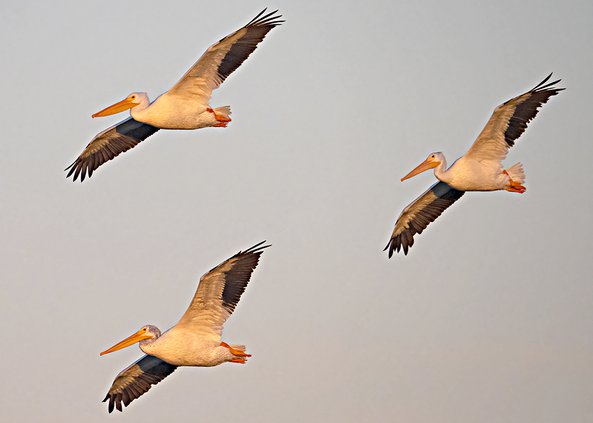STAFFORD COUNTY – Audubon of Kansas on Friday, Jan. 15, filed suit in U.S. District Court in Kansas City to restore the 60-plus-year-old water rights belonging to the Quivira National Wildlife Refuge, claiming irrigation along the Rattlesnake Creek has hampered water flow into the refuge. This is the latest action in a dispute that dates back nearly a decade.
Defendants include the U.S. Department of the Interior/Fish and Wildlife Service, the Kansas Department of Agriculture’s Division of Water Resources, and other federal and state officials. The non-profit conservation group says federal and state agencies have failed over the years to protect Quivira’s water priority.
Operated by the Fish and Wildlife Service, Quivira encompasses 22,135 acres and lies mostly in Stafford County, southeast of Great Bend. It is FWS that secured the sites water rights in 1957.
In its filing, Audubon noted it is a wetland of international importance on the Central Flyway and provides sanctuary to a wide variety of waterfowl, shore birds and other wetland species, several of them listed as endangered or threatened under the federal Endangered Species Act, such as the whooping crane.
The refuge annually attracts thousands of bird watchers, hunters, and other recreation seekers.
Audubon’s concerns
But, the refuge “has suffered from a shortage of water for the last 34 years, because of excessive groundwater pumping upstream in the Rattlesnake Creek Basin by irrigators, whose water rights are junior to that of the refuge,” AOK Board of Trustees member Dick Seaton said. “These facts were documented most recently in 2016 by the state’s chief engineer for Water Resources.”
The 1,276 square mile Rattlesnake Creek Drainage Basin is primarily located in Stafford, Pawnee, Edwards, Kiowa and Ford counties, with very small portions in Clark, Barton, Rice and Reno counties. When all of the water rights of the basin are compared by priority, Quivira is senior to approximately 95% of the total.
Nevertheless, “the U.S. Department of Interior, the U.S. Fish and Wildlife Service, the Kansas Secretary of Agriculture and the chief engineer have neglected and refused to perform their statutory duties to restore the water to which the refuge is entitled,” said Seaton, a Manhattan attorney.
AOK’s four-count lawsuit seeks “an injunction, a declaratory judgment, and an order of mandamus, all for the purpose of compelling these officials to do their duties as required by law,” he said.
Official response
“As a party named in the lawsuit, it is not appropriate for the Kansas Department of Agriculture to comment at this time on the suit filed by Audubon of Kansas,” said Heather Lansdowne, KDA director of communications. However, “the KDA Division of Water Resources supports conservation efforts that will contribute to a resolution of water right disputes that have challenged water users in the Rattlesnake Creek basin for many years.”
Questions to the Fish and Wildlife Service were directed to the agency’s External Affairs Department. However, the Great Bend Tribune was never contacted and was unable to contact them.
The defendants have 20 days after the filing to respond, although they could get extensions, Seaton said. Next would be discovery and assorted hearings.
Seaton said it could be years before this gets resolved.
Earlier effort not enough
In July 2020, an agreement over water rights was been signed between the federal government and local farmers over water rights in the refuge during a stakeholder meeting in St. John. The parties had tried to reach such an agreement in the region since 2013.
Republican U.S. Sen. Jerry Moran of Kansas and the new U.S. Fish and Wildlife Service director stepped in recently to help.
Under the deal, local farmers could continue irrigating their crops. The plan was to end water rights in sensitive areas of the refuge and allow water rights in less sensitive areas, as well as to remove water-depleting, invasive trees.
However, “that is not compliant with the law,” Seaton said. Audubon of Kansas was not a party to those negotiations nor the agreement.
“It is not enough,” he said. “We don’t believe it is sufficient.”





